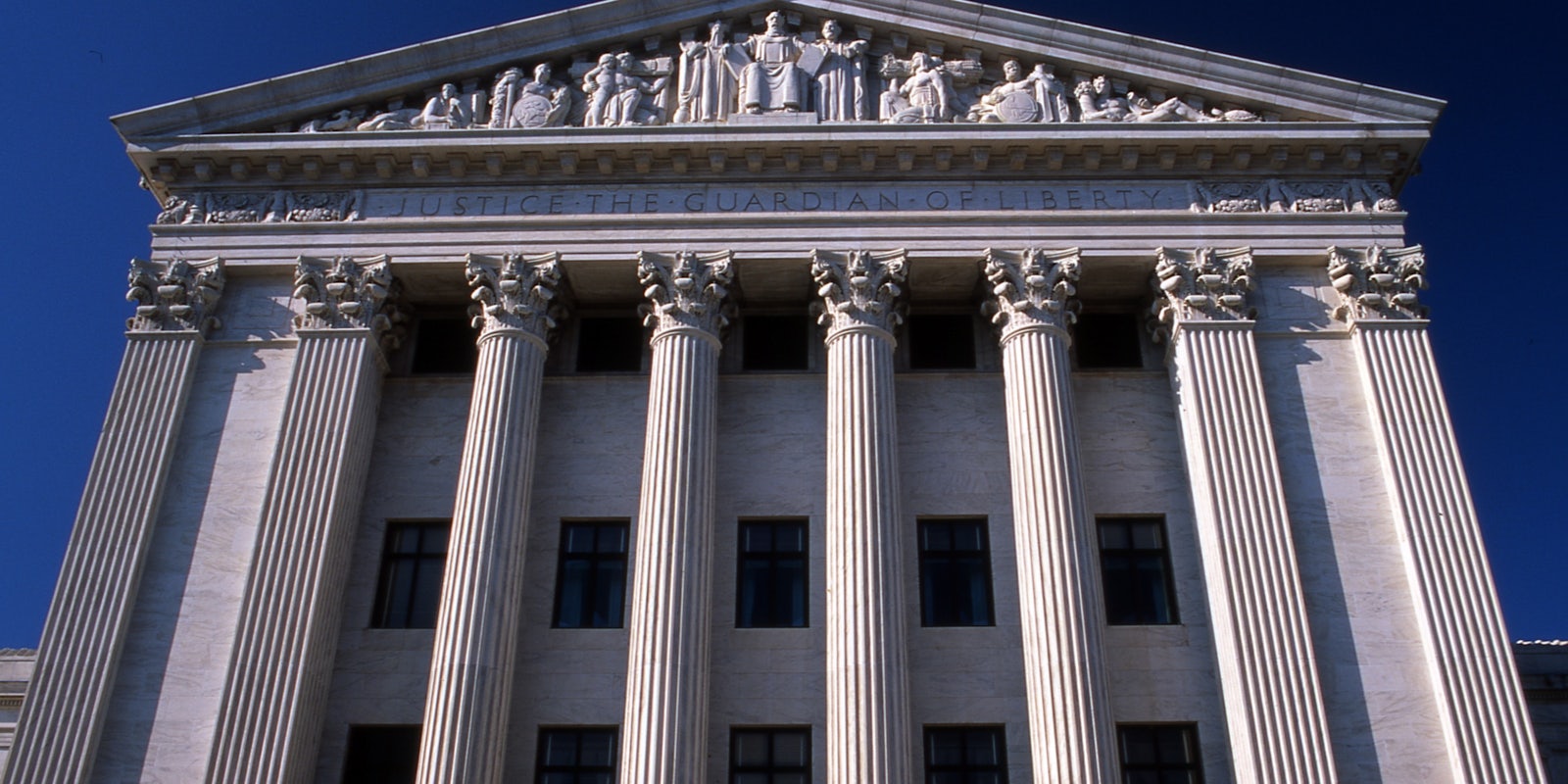The Supreme Court on Monday refused to vacate several court rulings that supported the Obama-era Federal Communications Commissions’ net neutrality regulations, Reuters reports. It’s a victory for net neutrality advocates, as it maintains pre-existing legal precedent necessary to protect net neutrality.
In 2016, the U.S. Court of Appeals for the District of Columbia ruled in favor of the FCC’s regulations protecting net neutrality in United States Telecom Association v. Federal Communications Commission. While the Trump-era FCC has since repealed net neutrality, companies such as AT&T and Verizon brought the appeals court ruling to the Supreme Court along with six other cases, all in the hopes of officially removing the court’s decision supporting net neutrality.
Instead, the Supreme Court declined to do so.
Three conservative judges—Justice Clarence Thomas, Justice Samuel Alito, and Justice Neil Gorsuch—were all set to vacate the seven lower court rulings that favored the Obama-era FCC regulations. Newly confirmed Supreme Court Justice Brett Kavanaugh and Chief Justice John Roberts both recused themselves from the petitions.
That’s easily in net neutrality activists’ best interest. In his ruling on U.S. Telecom Association, Kavanaugh called net neutrality “unlawful” as the 1934 Communications Act “does not supply clear congressional authorization for the FCC to impose common carrier regulation” on internet service providers (ISPs). He also claimed net neutrality “violates the First Amendment.” Meanwhile, Roberts has a financial portfolio that includes investments in Time Warner, according to Bloomberg’s Matt Schettenhelm.
The Supreme Court’s decision does not reverse nor reject the FCC’s ruling to repeal net neutrality. That still remains federal policy. However, the court’s choice reveals how three conservative judges would rule against prior precedent on net neutrality, with Kavanaugh likely following along based on his prior opinion on the matter. By declining all seven petitions, the Supreme Court maintains the lower courts’ precedents declaring net neutrality a lawful federal regulation. If the Supreme Court had accepted the petitions or vacated the lower court rulings, doing so would have strengthened the FCC’s repeal.
“It wasn’t enough for this @FCC to roll back #NetNeutrality,” FCC Commissioner Jessica Rosenworcel tweeted. “It actually petitioned the Supreme Court to erase history and wipe out an earlier court decision upholding open internet policies. But today the Supreme Court refused to do so. Let’s call this interesting.”
It wasn’t enough for this @FCC to roll back #NetNeutrality. It actually petitioned the Supreme Court to erase history and wipe out an earlier court decision upholding open internet policies. But today the Supreme Court refused to do so.
— Jessica Rosenworcel (@JRosenworcel) November 5, 2018
Let’s call this interesting. pic.twitter.com/pUjRScIntt
Supreme Court lets Obama’s #netneutrality rules stand, refuses to hear challenge. Kavanaugh recused himself because he heard the case already. Roberts recused because he owns stock in Time Warner. https://t.co/TdvfFM4kKX
— Rob Archer (@RobArcher) November 5, 2018
Rejection has little practical significance. FCC has already ended net neutrality. Only lingering issue was what to do with appeals court decision that upheld it — that can now serve as a precedent.
— Greg Stohr (@GregStohr) November 5, 2018
Net neutrality activists are stuck in legal battles with the FCC and the Trump administration over the repeal. The Department of Justice and telecommunication groups representing AT&T, Verizon, Comcast, and other ISPs formed a lawsuit against California’s “gold standard” net neutrality regulation. A similar lawsuit is ongoing with Vermont over that state’s net neutrality law. With lower court rulings maintaining net neutrality’s lawful existence, that’s more ammunition for future cases targeting the FCC repeal.
“There was absolutely no reason for the Supreme Court to take this case, and today’s denial puts to bed the chances of upending the correct appellate-court decisions,” Free Press Policy Director Matt Wood said in a statement. “Now we look forward to filing our final brief in the new appeal challenging [FCC Chair Ajit Pai’s] mistakes, and to making the argument in front of the D.C. Circuit this February in this latest round to save these crucial rules.”
https://twitter.com/mattfwood/status/1059457516361388033
https://twitter.com/mattfwood/status/1059458046043267072
https://twitter.com/mattfwood/status/1059458831229612035
READ MORE
- What is a good internet speed, really?
- Trump impeachment: Here are the odds Trump leaves office early
- The best political fact-checking sites on the internet
H/T Reuters


